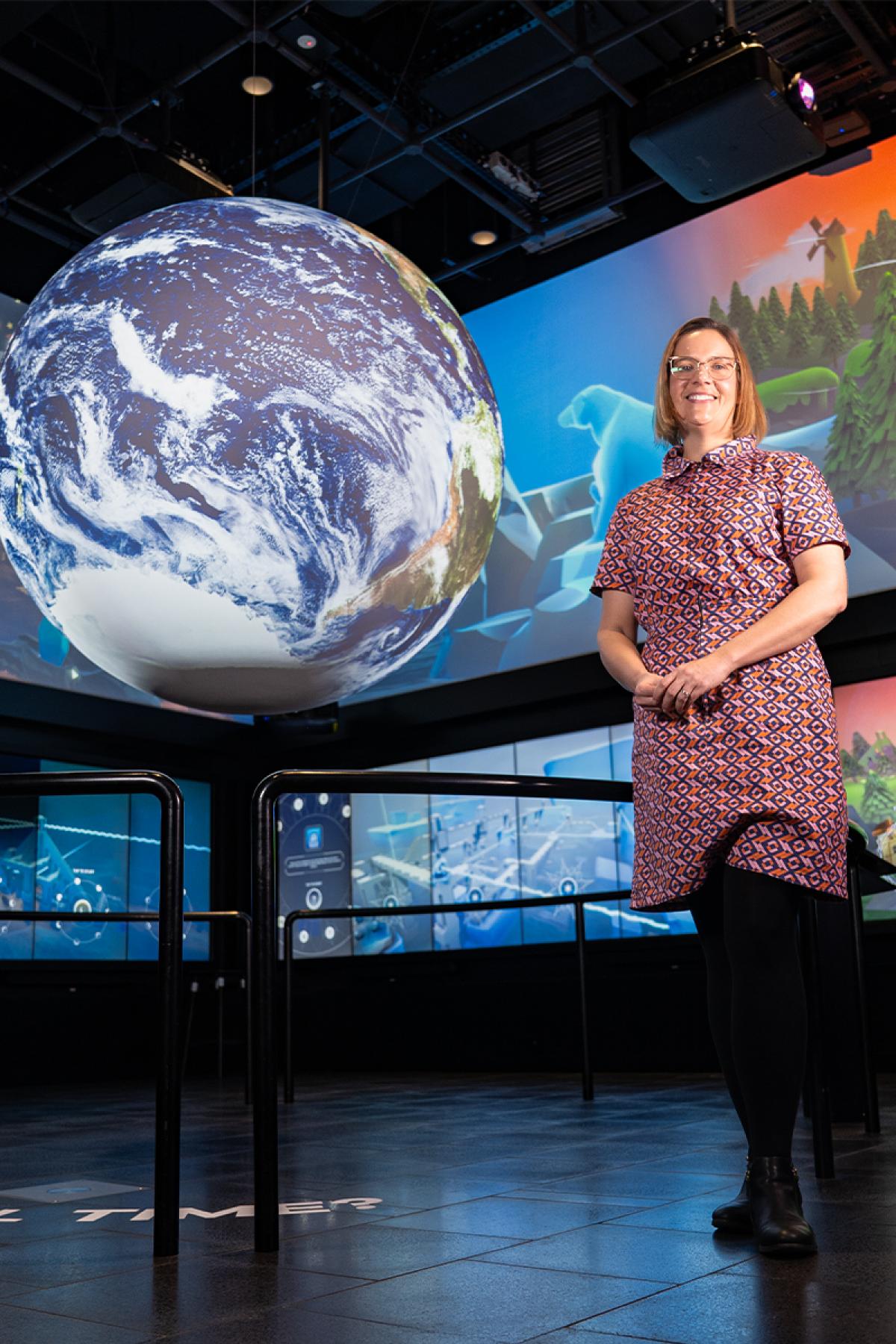Museum of the future

By Jackie Tracy
Foresight as a collective responsibility is an ethos embraced by the University of South Australia's future-focused museum, MOD.
For its director, Lisa Bailey, it’s critical to help young people contemplate the future with a sense of purpose and overcome resistance to uncertainty.
“We are trying to build that confidence and capability to think about how the choices they make can shape a future that they desire,” Lisa – a biological sciences PhD graduate of the University of Adelaide – says of the museum’s mission.
“We’re not on a set pathway. There are multiple possibilities, so the decisions and actions that we make now are going to impact that future.’’
That’s why MOD. aims to transport visitors to challenging and even uncomfortable places – like discussing death, as occurs in the current exhibition Forever. In Gen Z parlance, it may even give people the “ick”, visceral distaste and discomfort.
Forever concludes with Beyond Endings, where visitors converse with Eterna.Life AI team members about their own mortality and interview for a job in 2125 where their consciousness or regenerated self could live on as a cryo and cyborg concierge, memory sculptor, de-extinction vet or avatar couture designer. These roles, of course, don’t yet exist, although MOD. currently employs a Futures Officer.
The work of MOD. has been recognised with national and international awards, as well as corporate and private philanthropic support. The Gould Gallery takes its name from Dr Ian Gould AM – UniSA Chancellor from 2008-2015 – and his wife, Christine, whose support reflects their passion for the pursuit of science.
While humans can demonstrate a remarkable ability to adapt to and embrace new technologies, Lisa Bailey believes what is lacking is the physical and social infrastructure to manage the benefits and risks.
“There are more than 50 million people around the globe using chatbot companions, for all sorts of purposes – tutoring, health and social feedback and so on,” she says. “But it all comes down to how we are using these advances, are they helping us achieve our goals or getting in the way?
“In sci-fi, it’s very easy to go straight to dystopias, because that’s just imagining a distant future where we still haven’t fixed the problems that we have now. Contemplating a future where we don’t have those problems is a lot harder because it requires fixing the problems.’’
For 2026, the first MOD. exhibition under the banner of Adelaide University will, fittingly, be Beginnings.
“We’re starting a new university, but also, we’re interested in this idea of how you start things,” Lisa says. “To shape the future, you must start in the present.’’
Forever is at MOD. until 21 November. Entry is free, 10am-5pm, Tuesday to Saturday. Beginnings opens 13 January 2026.
Written by Jackie Tracy, Communications Coordinator for the University of Adelaide. Photograph of Lisa Bailey at MOD. by Isaac Freeman, photographic editor of Lumen.
